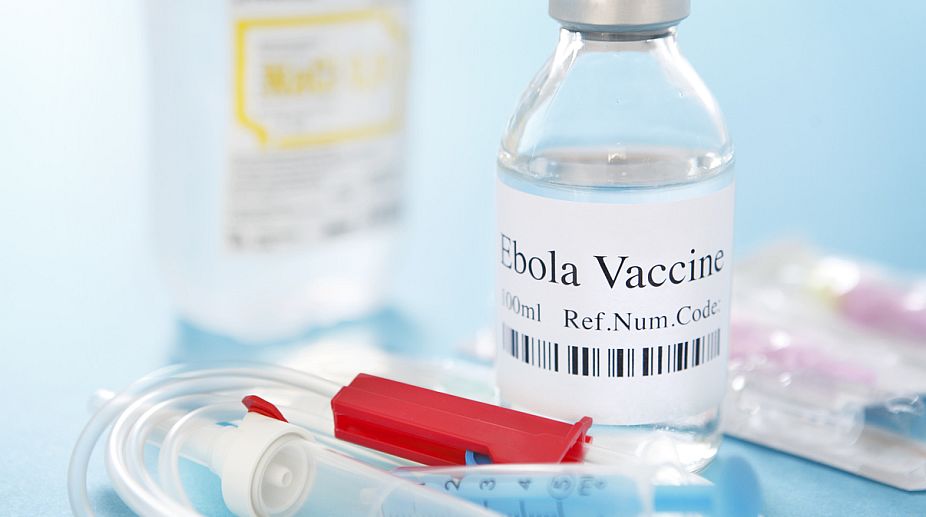Canadian researchers in a clinical trial have developed a vaccine for disease caused by Ebola virus.
The study found that the recombinant vesicular stomatitis virus-Zaire Ebola virus (rVSV-ZEBOV) is well-tolerated and showed no safety concerns.
Advertisement
The rVSV-ZEBOV is a recombinant, replication competent vesicular stomatitis virus-based candidate vaccine expressing a surface glycoprotein of Zaire Ebola virus.
Only mild to moderate side-effects were seen, with only three severe reactions, including headache, diarrhoea and fatigue, which were completely resolved, the researchers said.
Further, participants reported high-antibody levels in six months after the immunisation.
"The results of this trial were positive and very promising. All three dose levels of the rVSV Ebola vaccine were well-tolerated by participants, and no safety concerns were identified," said lead author May ElSherif, Canadian Centre for Vaccinology — an integrated collaborative vaccine research centre in Nova Scotia.
Data from this trial and others indicated an optimum dose of 20 million plaque-forming unit (PFU) that will be assessed among people with compromised immune systems in areas where Ebola is endemic.
The 2013-2016 Ebola virus outbreak in West Africa was the most widespread in history.
There were some latest clusters of Ebola cases in Africa and more expected as survivors may still spread the virus to uninfected people, the researchers said.
For the trial, published in CMAJ (Canadian Medical Association Journal), the team involved 40 healthy people aged 18 to 65 years and looked at safety of the vaccine and the lowest dose required for an immune response after injection with one of three doses.
Given the ongoing presence of Ebola, "these facts underscore the importance of continuing efforts and collaborations that may ultimately lead to licensed Ebola vaccines that would protect humans and prevent or control outbreaks in the future," ElSherif added.











